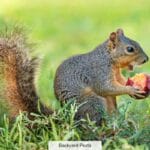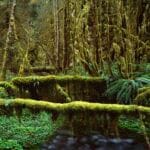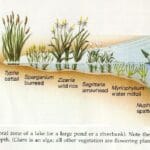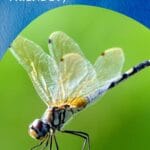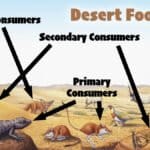Can squirrels eat bananas? Yes, but only in the tiniest amounts! Think of it as a very special, occasional treat, not a regular part of their diet. Giving squirrels too much banana can be harmful, much like giving a child too much candy. This comprehensive guide will explore everything you need to know about safely sharing bananas (or not!) with squirrels.
What’s on a Squirrel’s Menu?
Squirrels are naturally adept foragers. Their wild diet is a delightful mix of nuts (acorns, walnuts are favorites!), seeds (sunflower seeds are a top pick!), various fruits, fungi, and even insects. This variety provides essential vitamins and minerals for their active lives. Bananas, while appealing to us, present a different story.
Bananas: A Nutritional Comparison
Let’s compare bananas to a squirrel’s natural diet:
| Nutrient | Banana (per 100g) | Typical Squirrel Diet (general) |
|---|---|---|
| Sugar | High | Low to Moderate |
| Fiber | Moderate | Moderate |
| Potassium | High | Moderate |
| Protein | Low | Moderate to High |
| Fat | Low | Moderate to High |
(Note: This is a general comparison. Nutritional needs vary by species and individual squirrel. For detailed information, consult research on squirrel nutrition.)
The high sugar content in bananas is the primary concern. Excess sugar can contribute to weight gain, digestive problems, and potentially even health issues analogous to diabetes in humans.
The Sweet Truth: Banana Benefits & Risks
While a tiny amount of banana might offer a small boost of potassium and fiber, these benefits are easily outweighed by the risks associated with the high sugar content. Too much sugar can lead to several problems.
Potential Downsides of Bananas for Squirrels:
- Obesity and Weight Gain: Excess sugar leads to weight gain, reducing agility and increasing vulnerability to predators and disease.
- Digestive Issues: High sugar content can cause diarrhea, upset stomachs, and other digestive problems.
- Nutritional Imbalances: A diet focused on sugary treats can displace essential nutrients found in their natural food sources.
- Potential for Diabetes-like Conditions: The high sugar can potentially trigger a condition similar to diabetes in humans, leading to serious long-term health consequences.
Moderation: The Key to Safe Banana Treats
The crucial takeaway is moderation. A tiny piece, no bigger than a fingernail, given perhaps once a week at most, is likely acceptable. Never give a whole banana! It’s far too much sugar for their tiny systems. Think of a banana as a celebratory “micro-treat,” not a regular meal component.
Banana Peels: To Peel or Not to Peel?
While squirrels might nibble on banana peels due to their fiber content, offering them is generally discouraged. Peels can harbor pesticides, which are toxic. Also, they are tougher to digest, potentially leading to digestive upset. It’s best to avoid them altogether.
Ethical & Responsible Feeding
Feeding wild animals can have unintended consequences. Avoid luring squirrels to unsafe areas like busy roads or places with potential hazards. Allow them to maintain their natural foraging behaviors for a balanced, healthy life.
Protecting Your Banana Plants
Squirrels, with their penchant for mischief, can damage banana trees. Several methods can deter them:
- Physical Barriers: Install mesh netting or other physical barriers to protect your plants.
- Repellents: Use squirrel-specific repellents (always check for safety and environmental impact before applying).
- Companion Planting: Some plants deter squirrels through scent or taste. Research suitable companion plants for your region.
What Fruits Should Squirrels Avoid? [https://www.lolaapp.com/what-fruits-are-toxic-to-squirrels]
Beyond bananas, some fruits are toxic to squirrels. Avocados (contain persin), grapes, raisins, and cherry pits (contain cyanide) should be strictly avoided. Even small amounts of these can cause serious illnesses or death.
Apples and Bananas: A Closer Look [https://www.lolaapp.com/can-squirrels-eat-banana-peels-and-apples]
While small amounts of apples (remove seeds!) and bananas (remove peel and give tiny bits) are sometimes okay, always prioritize a balanced natural diet. These treats should be rare supplemental offerings, not a primary food source. Remember, improper feeding can lead to nutritional deficiencies and an unhealthy dependence on humans.
The Final Word
Squirrels can have a tiny amount of banana as a rare treat, but a balanced, natural diet consisting primarily of nuts, seeds, and other natural food sources is crucial for their well-being. Always remember; responsible and moderate feeding is paramount to their health and safety. Share this information to spread awareness of responsible squirrel care!
- Unlock Elemental 2 Secrets: Actionable Insights Now - April 2, 2025
- Lot’s Wife’s Name: Unveiling the Mystery of Sodom’s Fall - April 2, 2025
- Photocell Sensors: A Complete Guide for Selection and Implementation - April 2, 2025
